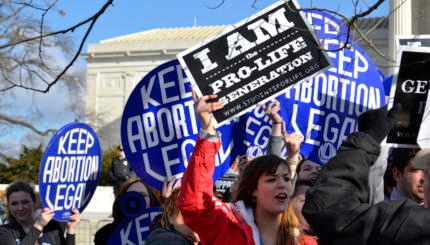Sociologists, historians, and political scientists have offered various explanations of American Jewish liberalism. In The Political Behavior of American Jews (1956), Lawrence Fuchs argued that liberalism emerged ineluctably from Jewish values, which stressed the importance of charity and social justice. Fuchs’s interpretation, as many critics pointed out, ignored the fact that there was no correlation between the intensity of Jewish commitment and liberalism. Jews living in the shtetls of Eastern Europe or in Orthodox neighborhoods in Brooklyn were less liberal than more assimilated Jews. Prominent Jewish leftists were often contemptuous of Jewish tradition and interests.
The explanation of Jewish liberalism as a fulfillment of Judaism also downplayed the fact that Jewish leftism was intensely secular and rejected the Orthodox definition of Jewish identity. It is not surprising that the Jewish socialist labor movement and YIVO [founded in 1925 as an academic institute dedicated to the study of Yiddish and East European Jewish culture] emerged in Vilna, the Jerusalem of Europe, as opposing definitions of Jewish identity in the midst of the most intensely Orthodox Jewish community in eastern Europe.
Another interpretation looked not to Judaism but to recent history to explain this Jewish commitment to liberalism. Prior to the late nineteenth century, the Jewish political orientation in Europe and the Arab lands was passive. Jews feared the state and were detached from political involvement. Since the parties of the left in Europe in the nineteenth and twentieth centuries favored Jewish emancipation and opposed anti‑Semitism, Jews naturally supported the political left and distrusted the political establishment, which was often anti‑Semitic. In addition, the growth in Europe of an urban Jewish proletariat in the late nineteenth century encouraged Jews to look to various forms of socialism as panaceas for their economic and social difficulties
These liberal and leftist political impulses were reinforced when Jews migrated to America. The Forward, the most important Yiddish daily paper, was a socialist journal. It had on its masthead the slogan, “Workers of the World Unite.” The political left in America, particularly during the 1930s, identified itself with the interests of what were termed the “urban masses,” which included Jews. In addition, the fact that Franklin D. Roosevelt led America into war against Hitler intensified Jewish support for the liberal wing of the Democratic party. Jews, judge Jonah Goldstein jested, had three velts (worlds): die velt (this world), yene velt (the other world), and Roosevelt.
With good reason, Jews identified anti‑Semitism with the right. This accounted for their interpretation of Nazism as a right‑wing, reactionary movement, despite the fact that the word Nazism stood for National Socialism. In addition, they attributed the rise of Hitler to the economic and social dislocations caused by the Great Depression. A society that provided good housing, jobs, unemployment insurance, health care, and educational opportunities would, they believed, be more immune to anti‑Semitic demagogues. Liberalism was thus a bulwark against anti‑Semitism.
While favoring the amelioration of social and economic problems by a strong central government, the Jewish approach to politics also contained an anarchistic strain. Jews had a deep distrust of authority because established political and social authority had threatened Jewish interests. The Jewish approach to politics was expressed by the rabbi’s response in Fiddler on the Roof when asked to compose a prayer for the czar. “Oh God,” the rabbi prayed, “please keep the czar…far away from us.”
Jews had a knee-jerk sympathy for dissenters challenging the legitimacy of constituted authority. This was exhibited in the many Jewish members of the American Civil Liberties Union, the distrust of Jews of the police, and their willingness to give the benefit of the doubt to the powerless in any conflict with government or powerful economic interests.
In contrast to the Irish, Jews tended to view politics in terms of social and economic redemption rather than as an opportunity for personal advancement. Largely excluded from the politics of eastern Europe, most Jews did not believe politics was a place where a nice Jewish boy should pursue a career. Jews were influential in postwar American politics as intellectuals, contributors, and voters, but not as politicians. Skeptical toward politicians, Jews are not skeptical toward the political process. For them, it is the means to create a better world.
Whatever its origins, liberalism remained a major component of American Jewish identity after 1945. The most eloquent postwar defense of Jewish liberalism was Leonard Fein’s 1988volume Where Are We? The Inner Life of America’s Jews. Fein, the founder of Moment magazine and former professor at Brandeis University, wrote this book at a time when Jewish liberalism was under increasing attack from Jews. Viewing assimilation as unfaithful to American and Jewish tradition, but cognizant that less than ten percent of American Jews observed the traditional commandments of Judaism, Fein argued that only a commitment to economic justice “can serve as our preeminent motive, the path through which our past is vindicated, our present warranted, and our future affirmed.”
Reprinted with permission from “A Time for Healing: American Jewry Since World War II,” published by The Johns Hopkins University Press.
shtetl
Pronounced: shTETTull, Origin: Yiddish, a small town or village with a large Jewish population existing in Eastern or Central Europe in the 19th and early-to-mid 20th century.



